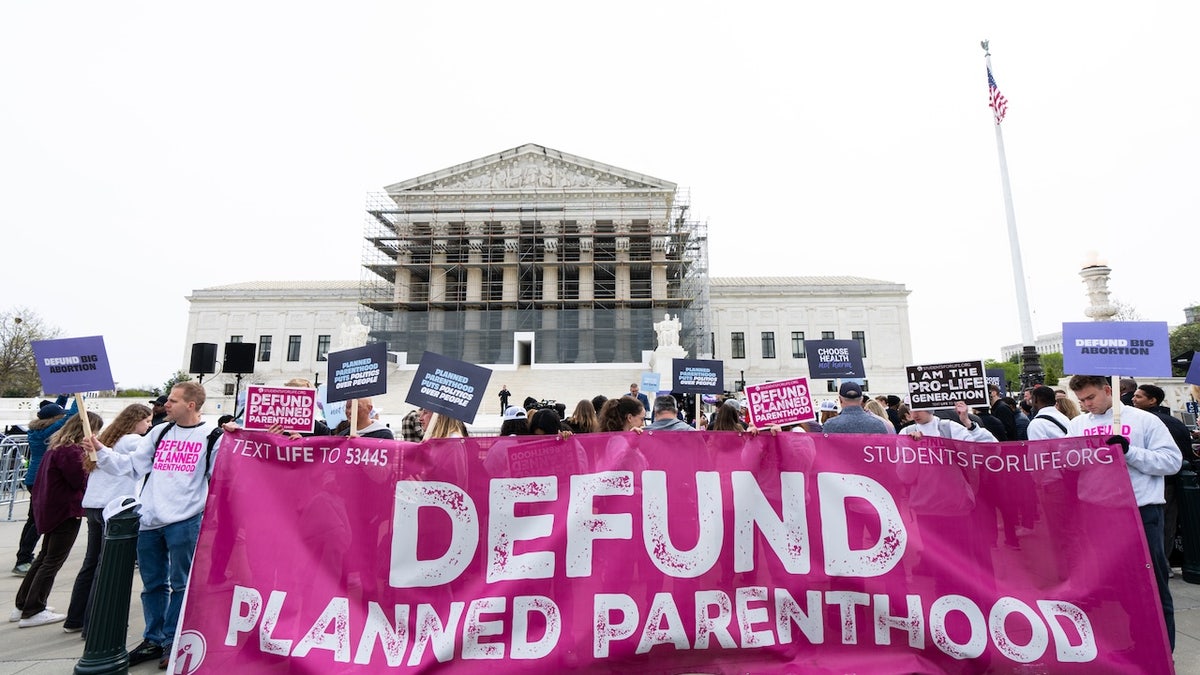

The Washington Post editorial board slammed Obama-appointed U.S. District Judge Indira Talwani's decision to block an "act of Congress" by issuing a preliminary injunction to revoke Congress's decision to divert Medicaid funds away from abortion providers like Planned Parenthood.
The Post editorial argued on Tuesday that, while some of the Trump administration’s attempts to strip federal funding from disfavored programs rightly face scrutiny for bypassing Congress, the Republican effort to cut Medicaid funding for abortion care was passed "fair and square" through the legislative process.
"Allocating public money is Congress’s core competency. Yet U.S. District Judge Indira Talwani not only countermanded Congress’s spending choice in a preliminary injunction, she also refused to stay her ruling pending appeal," the editorial board explained, adding, "This is the kind of lower court activism that gives the Trump administration fodder for its attacks on judges."
FEDERAL JUDGE BLOCKS TRUMP ADMINISTRATION FROM DEFUNDING SOME PLANNED PARENTHOOD FACILITIES

The Washington Post argued that Republicans diverted federal funds from abortion providers "fair and square," and a district judge's decision to rule against the spending cut damages the separation of powers. (Kevin Carter/Getty Images)
The tax and spending bill that was signed into law on July 4 contains a provision which states that, as of October 1, certain tax-exempt organizations that perform abortions can no longer receive reimbursements from Medicaid. Planned Parenthood promptly sued the federal government after the bill became law, as they stood to lose a sizable chunk of their federal funding.
Talwani agreed with Planned Parenthood and ruled that the provision is an unconstitutional "bill of attainder," which imposes legislative punishment on a specific group without judicial trial, and noted that the concept includes other forms of "legislative punishment."
"Many Republican members of Congress who voted for this reconciliation bill no doubt dislike abortion and want to defund Planned Parenthood because it is the country’s leading abortion provider. That doesn’t make the Medicaid restrictions illegitimate," The Post argued. "The budget process is inherently political, and Congress’s tax-and-spending decisions almost always help some groups and hurt others."

A Planned Parenthood sign. A federal judge has paused the Trump administration from enforcing part of a massive tax and spending bill that would block Medicaid funding for Planned Parenthood health centers. (ANGELA WEISS/AFP via Getty Images)
According to the Post, Talwani "strained" to label Congress's exercise of its spending discretion unconstitutional, noting that she claimed the Medicaid provision "requires Planned Parenthood Members to stop providing elective abortions," and it would prevent them "from engaging in a core part of their operation."
"But Congress has no obligation to subsidize any group’s operation," the outlet rebutted. "If forward-looking budgetary measures can be scrutinized as bills of attainder, Congress’s fiscal function will be incapacitated."
The Post contended that Talwani's decision is likely to be reversed on appeal, but her decision "is a reminder that the judiciary, as well as the executive, can overreach at Congress’s expense and damage the separation of powers."
In closing, the editorial board made the case that, regardless of whether one personally agrees with the policy, Congress' decision to divert Medicaid funding away from abortion services went through the proper constitutional process and deserves more "judicial deference" than an executive order.

Activists opposing funding for Planned Parenthood demonstrate in front of the U.S. Supreme Court on Wednesday, April 2, 2025. ((Bill Clark/CQ-Roll Call, via Getty))
"By curbing funding for abortion providers, social conservatives have advanced one of their longtime legislative priorities, fair and square. To protect that funding in the future, liberals will need to make the case to voters in 2026 and 2028," The Post concluded. "Judicial fiat cannot substitute for democratic legitimacy."
